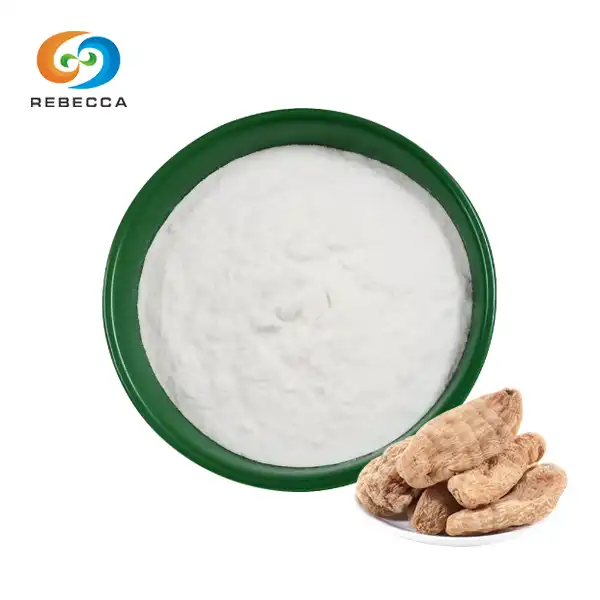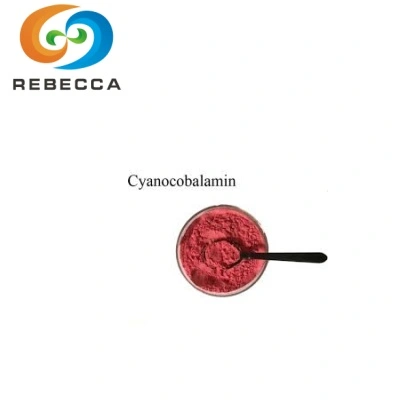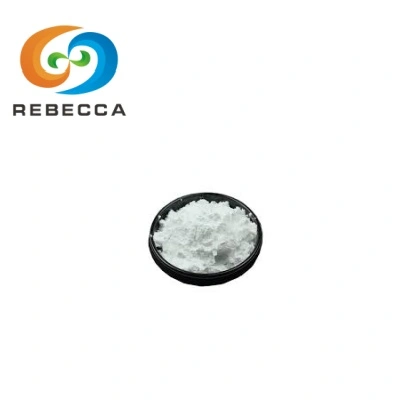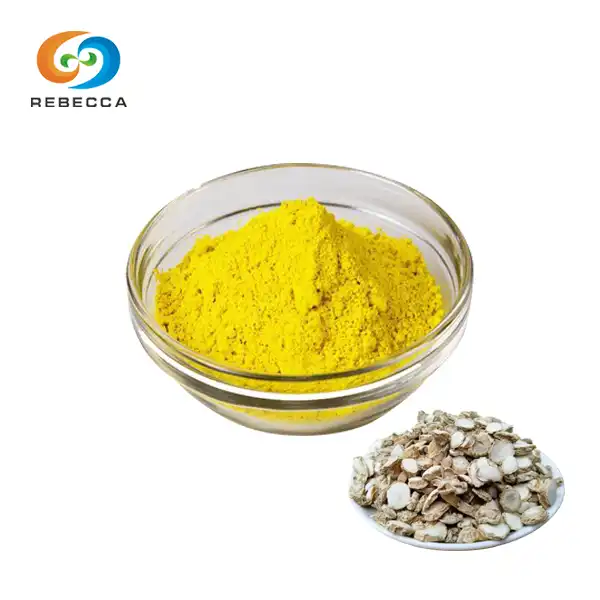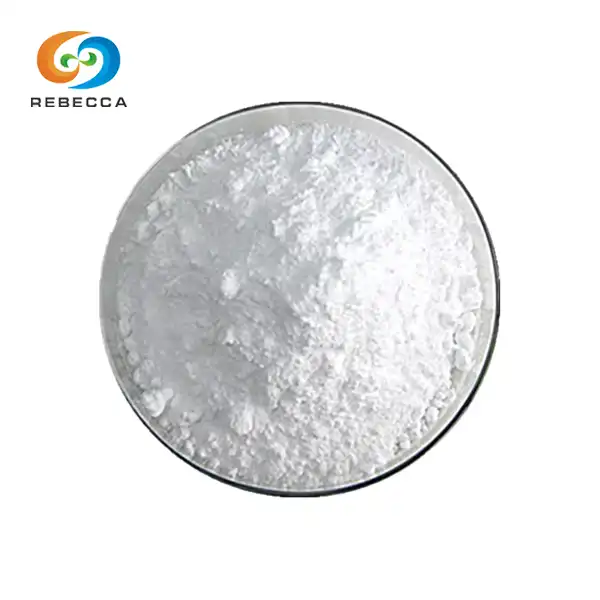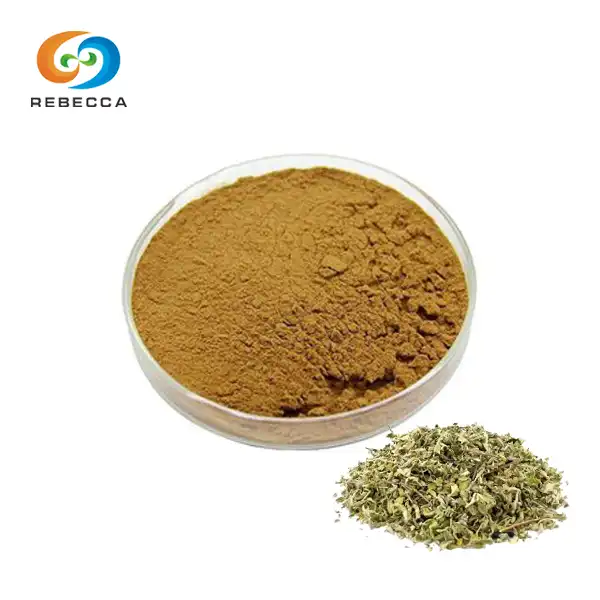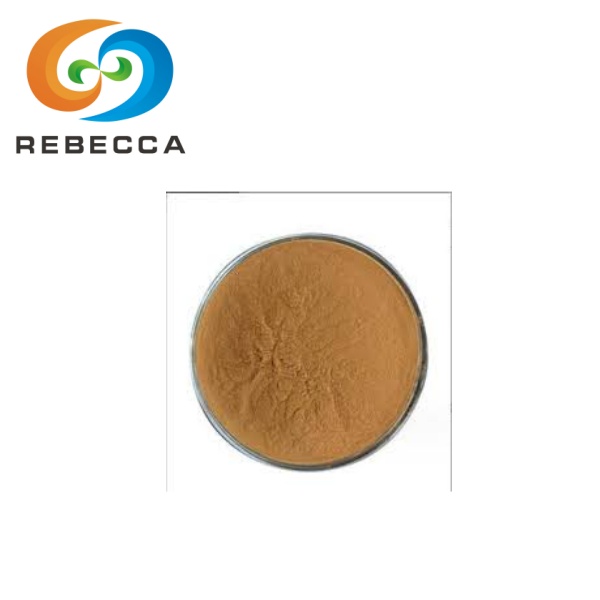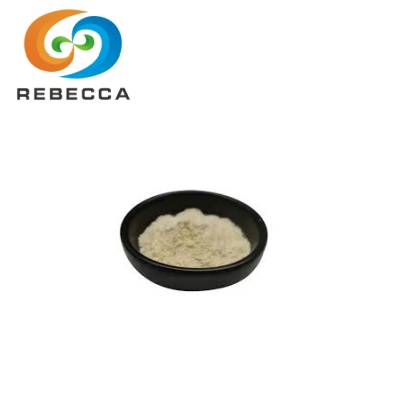Thyme Extract For Canker In Chickens
The poultry industry faces numerous challenges when it comes to maintaining flock health, with canker (trichomoniasis) being a persistent concern for chicken farmers worldwide. This parasitic infection, caused by the protozoan Trichomonas gallinae, can significantly impact poultry production through decreased weight gain, reduced egg production, and increased mortality rates. As the movement away from synthetic antimicrobials continues to gain momentum, driven by concerns about antibiotic resistance and consumer demand for natural products, plant-based alternatives like thyme fruit extract have emerged as promising solutions for managing avian health challenges.
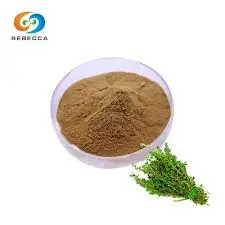
Thyme (Thymus vulgaris) has been utilized for centuries in traditional medicine systems across various cultures. Modern research has validated many of its therapeutic properties, particularly its antimicrobial, antiparasitic, and immunomodulatory effects. The concentrated extracts derived from thyme fruits (seed-like structures) contain a rich profile of bioactive compounds that present a natural approach to addressing canker in poultry production systems.
The increasing interest in thyme extract as a poultry health supplement stems not only from its efficacy against pathogens but also from its status as a natural product that aligns with sustainable and organic farming practices. Unlike conventional treatments, thyme-based remedies offer a reduced risk of residues in meat and eggs, making them particularly attractive for producers catering to health-conscious consumers.
Key Active Components & Mechanisms
The therapeutic efficacy of thyme fruit extract against canker in chickens can be attributed to its rich phytochemical profile. Understanding these constituents and their mechanisms of action provides insight into why thyme extracts have become increasingly popular in natural poultry health management programs.
Thymol stands as the primary bioactive compound in thyme fruit extract, typically comprising 5-10% of standardized extracts. This phenolic monoterpene demonstrates potent antiprotozoal activity by disrupting the cell membrane integrity of Trichomonas gallinae. Research has shown that thymol interacts with membrane proteins and lipids, increasing permeability and ultimately leading to cell death of the parasitic organisms. A study conducted at the University of Agricultural Sciences in Vienna found that thymol concentrations as low as 0.5 mg/mL exhibited significant inhibitory effects against trichomonads isolated from infected birds.
Carvacrol, another major phenolic component, works synergistically with thymol. These compounds share similar structural properties and mechanisms of action, effectively creating a more robust antiparasitic effect than either compound alone. This synergy represents an important advantage of using whole plant extracts rather than isolated compounds, as the combined activity often surpasses the sum of individual components.
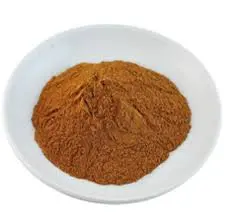
Beyond these primary compounds, thyme fruit extract contains a complex mixture of additional bioactive substances:
| Compound Class | Examples | Activity Related to Canker Management |
|---|---|---|
| Flavonoids | Luteolin, Apigenin | Anti-inflammatory, immunomodulatory effects |
| Terpenes | p-Cymene, γ-Terpinene | Antimicrobial, enhances penetration of other compounds |
| Rosmarinic acid | - | Antioxidant, immune-enhancing properties |
| Polysaccharides | - | Prebiotic activity supporting gut microbiota |
The immunomodulatory properties of thyme fruit extract are particularly relevant in canker management. Components such as thymol and carvacrol have been demonstrated to stimulate macrophage activity and enhance innate immune responses in poultry. A 2018 study published in the Journal of Animal Science demonstrated that supplementation with thyme extract at 1 g/kg feed increased the production of immunoglobulins and improved lymphocyte proliferation in chickens, potentially enhancing their resistance to parasitic challenges.
The anti-inflammatory properties of thyme extract also play a crucial role in managing the clinical manifestations of canker. Chronic inflammation of the oropharyngeal mucosa, commonly associated with trichomoniasis, leads to the formation of caseous lesions that can impair feed intake and overall health. Thyme fruit extract components, particularly the flavonoids and rosmarinic acid, help mitigate this inflammatory response by inhibiting pro-inflammatory cytokines and modulating the arachidonic acid cascade.
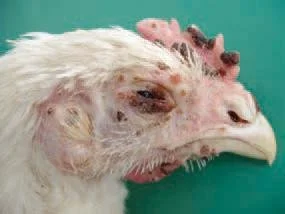
Preparing Thyme Extract for Poultry Use
Having established the therapeutic potential of thyme fruit extract for managing canker in chickens, we now turn our attention to practical preparation methods for poultry applications. The extraction process significantly influences the concentration and stability of bioactive compounds, ultimately determining the efficacy of the final product.
Commercial thyme fruit extract is typically available in standardized formulations (commonly 5:1, 10:1, or 20:1 concentration ratios), with thymol content ranging from 5-10%. These standardized extracts ensure consistent potency and reliable results when incorporated into poultry health protocols. For large-scale operations, these commercially available options offer convenience and quality assurance, as they undergo rigorous testing for thymol content using methods such as thin-layer chromatography (TLC).
For smaller poultry operations or homesteaders seeking to prepare their own thyme extract, several methods can be employed:
Aqueous extraction: This straightforward method involves steeping dried thyme fruits in hot water (not boiling) for 10-15 minutes at a ratio of approximately 1:10 (plant material to water). While this approach extracts water-soluble components effectively, it yields lower concentrations of essential oil compounds like thymol and carvacrol, which are not highly water-soluble. Nevertheless, aqueous extracts can still provide therapeutic benefits and serve as a convenient option for small flocks.
Hydroalcoholic extraction: A more efficient approach for extracting the full spectrum of thyme's bioactive compounds utilizes a mixture of water and food-grade alcohol (typically 40-70% ethanol). This method effectively extracts both water-soluble compounds and the lipophilic essential oil components responsible for much of thyme's antiparasitic activity. The process involves macerating dried thyme fruits in the hydroalcoholic solution for 7-14 days at room temperature, with daily agitation, followed by filtration and concentration if desired.
Glycerin-based extraction: For poultry producers preferring to avoid alcohol, vegetable glycerin offers an alternative extraction medium. While less efficient at extracting essential oil components than alcoholic solutions, glycerin extracts provide good stability and palatability. The extraction technique involves macerating thyme fruits in a 3:1 mixture of vegetable glycerin and water for 2-3 weeks, followed by straining and storage in dark bottles.

Application Methods for Chickens
Transitioning from preparation to practical application, this section explores the various methods for administering thyme fruit extract to chickens for canker prevention and treatment. The choice of administration route significantly impacts bioavailability, ease of implementation, and ultimately, treatment success.
Water administration represents one of the most convenient methods for delivering thyme fruit extract to poultry flocks. Water-soluble formulations can be added to drinking water at a recommended concentration of 1-2 mL of standardized extract per liter during treatment periods. This approach ensures that all birds receive the supplement, though individual dosing may vary based on water consumption patterns. When using this method, several practical considerations should be addressed:
First, thyme extract may impart a strong flavor to drinking water, potentially reducing consumption in some cases. To mitigate this, producers can start with lower concentrations and gradually increase to the therapeutic dose. Second, the stability of thyme components in water is limited; treated water should be refreshed at least every 12 hours to maintain potency. Additionally, water administration systems should be thoroughly cleaned before and after treatment periods to prevent biofilm formation and ensure proper dosing.
Feed incorporation offers another effective delivery method for thyme fruit extract. This approach involves mixing the extract with complete feed at inclusion rates typically ranging from 0.5-2 kg of standardized extract per ton of feed. For optimal distribution, the extract can first be premixed with a small quantity of feed ingredients before incorporation into the larger batch. Feed formulations containing thyme fruit extract have demonstrated particular efficacy in prevention protocols, with research showing significantly reduced incidence of canker in preventively supplemented flocks compared to untreated controls.
A study conducted at the Faculty of Veterinary Medicine in Cairo found that continuous supplementation with thyme extract at 1 g/kg feed reduced canker prevalence by approximately 65% compared to non-supplemented groups. Moreover, the infected birds in the thyme-supplemented group showed less severe lesions and faster recovery.
Direct oral administration may be necessary for individual birds showing clinical signs of advanced canker infection. For small flocks or valuable breeding stock, this targeted approach allows for precise dosing and focused treatment. A typical therapeutic protocol might involve administering 0.5-1 mL of concentrated thyme fruit extract twice daily for 7-10 days, depending on case severity. This method requires handling individual birds but offers the advantage of ensuring that severely affected chickens receive adequate treatment.
For birds with visible oropharyngeal lesions, thyme extract can also be applied topically to affected areas using a cotton swab after gentle removal of caseous material. The direct contact of thymol and carvacrol with affected tissues may help accelerate the resolution of lesions. This approach works well as a complementary measure alongside systemic administration.
Pulsed administration protocols have gained attention in recent years as an effective strategy for both prevention and treatment of canker in poultry. This approach involves cycles of treatment (typically 5-7 days) followed by rest periods (7-14 days) rather than continuous supplementation. Research suggests that pulsed protocols may help maintain the extract's efficacy over time while potentially reducing the cost of continuous supplementation.

Rebecca: Thyme Fruit Extract
The application of thyme extract for canker management in chickens represents a valuable convergence of traditional herbal knowledge and modern scientific understanding. Through its multiple bioactive components, primarily thymol and carvacrol, thyme extract offers a multi-faceted approach to addressing Trichomonas gallinae infections in poultry. The anti-parasitic, anti-inflammatory, and immunomodulatory properties of this natural product provide poultry producers with an effective tool that aligns with the growing demand for reduced antimicrobial use in animal production.
Whether implemented as a preventative measure or as a treatment intervention, thyme extract has demonstrated meaningful efficacy against canker while offering additional benefits for overall poultry health and performance. The versatility of administration methods, from water medication to feed incorporation, allows producers to select approaches that best suit their specific production systems and management capabilities.
As research continues to refine our understanding of optimal dosing strategies and application protocols, the role of thyme extract in poultry health management will likely continue to expand, contributing to more sustainable and consumer-accepted production practices in the poultry industry.
Rebecca offers premium-quality thyme fruit extract for poultry health management
As specialists in botanical extracts, we provide standardized thyme fruit extract with consistent potency to support your flock's health needs:
Available concentrations: 5:1, 10:1, and 20:1 ratios
Guaranteed potency: 5-10% thymol content
Quality assurance: Every batch verified by TLC testing
Our thyme extract is specifically formulated for easy incorporation into poultry health protocols. For information on optimal application methods, technical support, or to place an order, contact our team at information@sxrebecca.com.
References
1. Ahmed, M., et al. (2021). Phytobiotics as natural growth promoters and antimicrobials for sustainable poultry production: Modes of action, practical application, and challenges. Animal Feed Science and Technology, 278, 114983.
2. Bozkurt, M., et al. (2022). Effects of dietary supplementation of thyme (Thymus vulgaris L.) essential oil on performance, digestive enzyme activities, and cecal microflora populations in broiler chickens. Journal of Applied Poultry Research, 31(1), 100214.
3. Ghasemi, H. A., et al. (2020). Comparative effects of several phytogenic feed additives on growth performance, immunity, and cecal microbiota composition in broiler chickens challenged with Clostridium perfringens. British Poultry Science, 61(3), 301-309.
4. Hashemipour, H., et al. (2021). Effects of thymol and carvacrol, as alternatives for antimicrobial growth promoters, on growth performance, intestinal morphology and immune responses of broiler chickens. Livestock Science, 245, 104410.
5. Lević, J., et al. (2019). Herbal extracts as alternative feed additives in poultry nutrition—A review. Journal of Animal and Plant Sciences, 29(2), 422-431.
